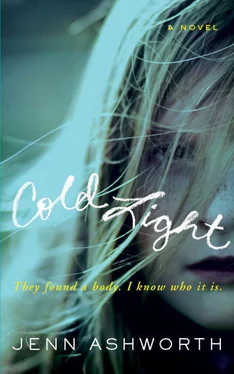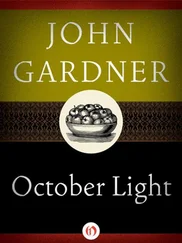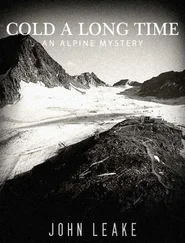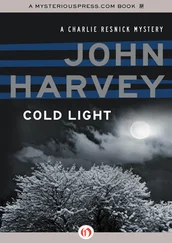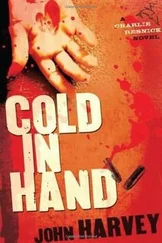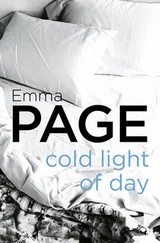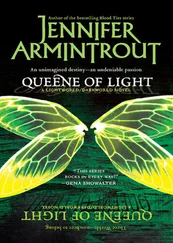The other girls never want to come and sit with us. To them, we’re too old.
The last time we were due to meet – about a week ago – Emma never turned up. I waited until nearly closing time and the cafe was almost empty. In there the waitresses wear black dresses and white aprons – a caricature of a maid’s outfit that might sound erotic, but isn’t. The dresses are Teflon and spotted with margarine and dropped coffee. They glide between the tables, wiping and lifting chairs. I was far away, thinking about worms as long as freshwater trout, as long as skateboards, even, and the girl behind the counter shouted over to me – told me to order now if I wanted anything else because she was going to cash up the till. I shook my head. There were wet rings under her arms.
I was sweating too. Wondering what Emma was up to, why she hadn’t come. It was the anniversary coming up, I thought. The memory of it. The way flowers were starting to appear on the verges outside the school again, in the windows of the bank and post office. You couldn’t open a paper without Chloe’s face smiling out at you. Happy Valentine’s Day. The patron saint of lovers and dead schoolgirls. It was bound to make her twitchy. Erratic. Maybe she’d want to talk to someone. I ignored the waitress, who was tutting and slamming the till closed, and waited.
‘You never came, the last time,’ I say. ‘I sat there for ages.’
If you say you’re going to be somewhere, you should show up. No questions asked. Take me and Chloe – for all her faults, she never once let me down like that. What Chloe and I had was rare and special and it isn’t really fair to compare Emma to her in that way, but all the same, I am pissed off.
Emma’s eyes are glued to the screen and she has that look people get when they’re immersed in television – slack, absent, stupid.
‘I sat there like a lemon, waiting. I looked like a dick.’
‘There was an emergency at work,’ she said. ‘I needed to stay and help out.’
‘Emergency?’
I don’t believe her. Emma doesn’t ‘work’. She claims incapacity benefit for depression, anxiety attacks and phobias. She volunteers at a dogs’ home sixteen hours a week and because they can’t pay her they let her take her pick of the clothes people donate to sell in their charity shop.
Emma nods. ‘There was a holdall of puppies dumped around the back of the office. I only noticed it because one of them squeaked as I walked past. Would have walked right past otherwise. I got them out – newborn ones – and I had to wait until the on-call vet turned up.’ She turns to me, and suddenly smiles. ‘We only lost four of them.’
‘That’s good,’ I say. I want to ask her what they did with the dead ones, but I don’t.
Emma nods, turns back to the television and makes herself another roll-up.
‘I thought you were giving up?’
She pulls a face. ‘Too late for that. I started at school. Chloe used to give them to me. I’ll probably smoke forever. The earlier you start,’ she sucked at the tube hungrily, ‘the harder it is to stop. More than half my life now.’
‘Me too,’ I say. ‘I wonder how many other people she passed that habit on to?’
Emma turns her head and stares at me as if I’ve said something shocking and blasphemous. The branch of Nationwide on the high street kept a framed photograph of Chloe and an everfresh bunch of Juliet roses in the window for three years. No one is allowed to say anything bad about Chloe. Chloe was born beautiful, had no ugly duckling phase, and stayed beautiful. The world didn’t dirty her: Chloe would have got to thirty and still had her unmarked skin and fine, pale hair.
The thing is, Emma and I both know that if either of us had drowned ourselves the news wouldn’t have made page six. At fourteen, Emma was sullen and sallow and buck-toothed, but when she was with Chloe and me she laughed a lot and it wasn’t so noticeable. I wonder if she still likes children. I know she likes her job in the dogs’ home, feeding and cleaning the kennels. She told me in a rare moment of confiding that she stays longer than she needs to in order to wash the dogs and brush their coats because she thinks it increases their chances of being adopted. This, and what I remember about her from school, are the only things that I know about her.
Sometimes I am consumed with curiosity and I imagine myself following her home and looking through her bathroom window while she unwraps soap and pulls a comb through her hair. I picture her alone, in a bare and empty flat – but maybe that’s just because that’s how I live. The walls are white, the sink and toilet are white, she uses white soap and a rough white towel to take the dog smell off her angular, yellow body. I imagine her nipples: as small and dark as melanomas.
When I am feeling kinder, I imagine Emma with the dogs. I’ve been to the dogs’ home once before, with Donald. There’s a narrow walkway between rows of wire cages, concrete floors with channels, and glinting metal plugholes. The noise of the dogs barking and throwing themselves against the rattling wire panels and the stink of piss and fur and meat and Jeyes Fluid is nearly overwhelming. I try not to hate Emma, and I imagine the dogs falling quiet as she passes by them with a brush and a tartan blanket that smells of Persil. In this dream life I have made for her they lick her hands and she smiles and talks to them in the high-pitched, expressionless voice she was saving for her children.
Yes. I try not to hate her, and I give her cleanliness and solitude in her white flat, and I give her her dogs, but I don’t call on her and I don’t ask exactly where she lives. I don’t know what she thinks she knows about me and Chloe and I don’t want to know.
‘Well don’t stand me up next time,’ I say weakly, and Emma ignores me. She finishes her wine, holds her glass out to me and smiles, and I push the tap on the box and top it up for her. We stare at the television. The remote control lies between us, untouched.
‘This is just the regional news,’ Emma says. ‘I bet for the rest of the country things are going on as usual.’
I nod, and I can’t tell by the tone of her voice if she thinks this is a bad idea or not. The rest of the country is a vague, fuzzy place. It might not even exist.
Terry is talking about how they date long-buried bodies. There are tests they can do on the organisms of the bacteria on the remains. Any insects or larvae remaining. They know how fast certain materials are supposed to decay. There’s carbon-dating. It is not going to take all that long for people to start putting two and two together.
‘You think all this is going to outshine Chloe?’ Emma says scornfully and gestures towards the screen with her wine glass. ‘After all this time?’
‘Maybe,’ I say. ‘We’ll have to wait and see, I suppose.’
My words hang in the air. Emma turns her attention back to the screen. I feel the wine churning in my stomach. I do not want to wait and see. I want to press stop, but real life, as I am constantly reminded, does not work like that.
Something that often surprised people about Chloe: she loved her cars. She bought Top Gear as well as Just Seventeen , and she knew all the makes and models and engine sizes. Could have had a conversation with anyone about it and held her own, but most of her conversations were with me and Emma, who knew nothing and could only nod. But if she liked her cars, she liked the boys that drove them even more and what she liked best of all was the combination.
When we walked – from one of our houses to the shop for cigarettes and an attempt to buy booze, or from school to one of our houses, or aimlessly around the streets, in circles with arms linked like lovers or old ladies – sooner or later we would hear that sound. A car slowing to draw up beside us on the pavement, the passengers whooping and gesturing and the driver revving the engine as if the mechanical mess under the bonnet that worked the car was part of his body and the growling and pinking of the engine was a language.
Читать дальше
